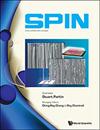二部最大匹配问题的可扩展拍卖算法
IF 0.7
4区 物理与天体物理
Q4 PHYSICS, APPLIED
引用次数: 0
摘要
本文给出了最大加权二部匹配(MWM)和最大基数二部$b$匹配(MCbM)的拍卖算法。我们的算法分别以$O\left(\log n/\varepsilon^8\right)$和$O\left(\log n/\varepsilon^2\right)$轮在黑板分布式设置中运行。我们表明,我们的MWM算法可以分别使用$O(\log^2 n)$和$O(\log n)$位消息在分布式、交互式设置中实现,直接回答了Demange、Gale和Sotomayor [DNO14]提出的开放性问题。此外,我们还在各种其他模型中实现了我们的算法,包括半流模型、共享内存工作深度模型和大规模并行计算模型。我们的半流MWM算法在$O(n \log n \cdot \log(1/\varepsilon))$空间中使用$O(1/\varepsilon^8)$通道,而我们的MCbM算法使用$O\left(\left(\sum_{i \in L} b_i + |R|\right)\log(1/\varepsilon)\right)$空间在$O(1/\varepsilon^2)$通道中运行(其中参数$b_i$表示$b$匹配的程度约束,$L$和$R$分别表示二部图的左侧和右侧)。除了改进MCbM的轮复杂度外,这两种算法还\emph{以}指数方式提高了半流模型中对$\varepsilon$的空间复杂度的依赖,而不是针对这些问题的最知名算法。最后,我们的算法在工作深度和大规模并行计算模型中分别消除了对$n$深度和轮数的大量多对数依赖,改进了先前对$n$有大量多对数依赖的结果(以及MPC模型中对$\varepsilon$的指数依赖)。本文章由计算机程序翻译,如有差异,请以英文原文为准。
Scalable Auction Algorithms for Bipartite Maximum Matching Problems
In this paper, we give new auction algorithms for maximum weighted bipartite matching (MWM) and maximum cardinality bipartite $b$-matching (MCbM). Our algorithms run in $O\left(\log n/\varepsilon^8\right)$ and $O\left(\log n/\varepsilon^2\right)$ rounds, respectively, in the blackboard distributed setting. We show that our MWM algorithm can be implemented in the distributed, interactive setting using $O(\log^2 n)$ and $O(\log n)$ bit messages, respectively, directly answering the open question posed by Demange, Gale and Sotomayor [DNO14]. Furthermore, we implement our algorithms in a variety of other models including the the semi-streaming model, the shared-memory work-depth model, and the massively parallel computation model. Our semi-streaming MWM algorithm uses $O(1/\varepsilon^8)$ passes in $O(n \log n \cdot \log(1/\varepsilon))$ space and our MCbM algorithm runs in $O(1/\varepsilon^2)$ passes using $O\left(\left(\sum_{i \in L} b_i + |R|\right)\log(1/\varepsilon)\right)$ space (where parameters $b_i$ represent the degree constraints on the $b$-matching and $L$ and $R$ represent the left and right side of the bipartite graph, respectively). Both of these algorithms improves \emph{exponentially} the dependence on $\varepsilon$ in the space complexity in the semi-streaming model against the best-known algorithms for these problems, in addition to improvements in round complexity for MCbM. Finally, our algorithms eliminate the large polylogarithmic dependence on $n$ in depth and number of rounds in the work-depth and massively parallel computation models, respectively, improving on previous results which have large polylogarithmic dependence on $n$ (and exponential dependence on $\varepsilon$ in the MPC model).
求助全文
通过发布文献求助,成功后即可免费获取论文全文。
去求助
来源期刊

Spin
Materials Science-Electronic, Optical and Magnetic Materials
CiteScore
2.10
自引率
11.10%
发文量
34
期刊介绍:
Spin electronics encompasses a multidisciplinary research effort involving magnetism, semiconductor electronics, materials science, chemistry and biology. SPIN aims to provide a forum for the presentation of research and review articles of interest to all researchers in the field.
The scope of the journal includes (but is not necessarily limited to) the following topics:
*Materials:
-Metals
-Heusler compounds
-Complex oxides: antiferromagnetic, ferromagnetic
-Dilute magnetic semiconductors
-Dilute magnetic oxides
-High performance and emerging magnetic materials
*Semiconductor electronics
*Nanodevices:
-Fabrication
-Characterization
*Spin injection
*Spin transport
*Spin transfer torque
*Spin torque oscillators
*Electrical control of magnetic properties
*Organic spintronics
*Optical phenomena and optoelectronic spin manipulation
*Applications and devices:
-Novel memories and logic devices
-Lab-on-a-chip
-Others
*Fundamental and interdisciplinary studies:
-Spin in low dimensional system
-Spin in medical sciences
-Spin in other fields
-Computational materials discovery
 求助内容:
求助内容: 应助结果提醒方式:
应助结果提醒方式:


